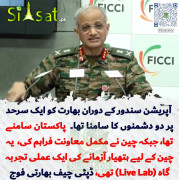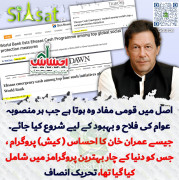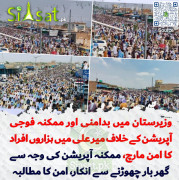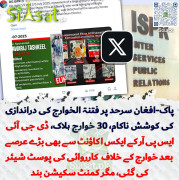hans
Banned
This post is dedicated to History of Sindh, before Partition, and proof that Sindh can be cut and divided like Bombay Cake.
Source: http://www.forexpk.com/economic-upd...in-the-laboratory-of-provincial-autonomy.html

Maulana Abul Kalam Azad with Allah Bux Soomro
On May 14, 1943, Sindh was deprived of Shaheed Allah Bux Soomro, who is still revered as the province s only undisputed political leader in the eyes of its all political, nationalist and religious activists. Sindh s political history is incomplete without discussing the life and times of Soomro. He was a great politician yet a practical and honest person with a balanced personality and uncompromising nature where vested interests come in the way of principles, Jalal Mehmood Shah, a former deputy speaker of the Sindh Assembly and grandson of G.M. Syed, says.Soomro was the first popular leader of modern Sindh when it found itself on the British India s map again in 1936 well after 80 years when the British made it a part of the Bombay Presidency in 1847. He remained in the parliamentary politics just for six years that he started as the leader of the opposition, which followed his twice brief stints as the premier of Sindh. Despite differences even great Sindhi nationalist leader late GM Syed reckons Soomro as the greatest nationalist of all. Today he (Soomro) is sleeping in his grave in the Panjpir graveyard. We can t say whether he would be laughing at our condition or weeping! late Syed had said once. He was a strange individual who, unlike today s rulers, would appreciate honest officials no matter they even went against him. During his premiership he ordered people not to come out in midnight to save them from criminals. One day, he came out in midnight to meet someone but a policeman intercepted him and took him to the police station. The station incharge was outside and he did not get himself identified. He remained in the police station till dawn when the incharge returned and shocked to see the premier sitting on a bench, Soomro s daughter Razia, reminisces.
The premier instead appreciated the cop for his honesty and promoted him. Born in 1900, Soomro matriculated and joined his father s business as a zamindar (landlord) and contractor. He was just 23 when he entered into local politics and was elected to the Jacobabad Municipality and became the president of the District Local Board. He defeated an influential feudal lord in northern Sindh in 1926 and became a member of the Bombay Council and remained one for the next ten years.
In 1936, Sir Shahnawaz Bhutto and Sir Abdullah Haroon founded the Sindh Ittehad Party, which won 24 out of 33 Muhammadan (Muslim) seats in a house of 60. Soomro was one of the frontline leaders of the party and became leader of the opposition in the First Assembly of Sindh as Bhutto and Haroon lost the elections.
Sir Ghulam Hussain Hidayatullah, whose Muslim Political Party had won just five seats, was offered to form the government by Governor Sir Lancelot Graham. As it often happened in post-Independence Sindh turncoats were in abundance in those days too and there were good numbers of independent Hindu legislators who helped Sir Hidayatullah become the first premier of Sindh. In 1938, Hidayatullah stepped down and Soomro was offered to form his government, which he successfully did with the Congress s help.
The Sukkur Barrage was established in 1932 for agriculture reforms and an organised irrigation system in Sindh. The British government had earlier allowed Sindh to pay the cost incurred on the barrage in easy instalments but after Soomro assumed charge he was compelled to pay the money in a shorter time and in unaffordable installments. Soomro had to increase taxes, which eventually broke the ruling coalition that consisted of three parties and even the Ittehad Party split into two.
Soomro abolished the old Darbar system and implemented agricultural reforms. He withdrew the magisterial powers given to the influential feudal lords and lifted the externment orders on Maulana Obaidullah Sindhi and successfully arranged for his return to become the most hated of Indians for the British rulers. For many political analysts Sindh s politics would have been much different, matured and non-communal had Soomro not been gunned down.
He was a man of his time who made a very important contribution to events in Sindh during what was a crucial transition phase in the politics of the subcontinent. Just imagine how much less interesting the history books of this period would be without him! Sarah Ansari of Royal Holloway, University of London, writes.
Soomro never bothered with official protocol. He was darvesh for many of his rivals and one of them was Pir Ali Mohammad Rashdi who, despite differences with Soomro, called him the most honest and down-to-earth ruler of Sindh. A chapter on Soomro in Rashdi s Sindhi book of memoirs Uhay Deenhan Uhay Sheenhan (The days that were) is self-explanatory.
According to PV Tahilramani and KR Malkani s book The Sindh Story, The unassuming Allah Bux sat by the side of the driver, never used the official flag on the car bonnet, never accepted any invitation to receptions or parties. In the train he would use the upper berth and let others use the more convenient lower berth. On one occasion when floodwaters threatened Shikarpur, he breached the canal to flood his own lands and saved the city. But above all he was non-communal and nationalist.
In 1938, Mohammad Ali Jinnah visited Karachi where he held a meeting to launch the Muslim League in Sindh. Top leaders from the Punjab and Balochistan attended along with Soomro and other Sindhi leaders. During the meeting, Premier Soomro was asked to join the League like the premiers of Bengal and Punjab who accepted after a marathon debate. In the next meeting on October 14, a number of Sindh Assembly members also joined the League.
During the meeting, the new Leaguers proposed a new leader in Sindh, which Soomro opposed on the contention that when no new leaders has been elected in Bengal and the Punjab and no new premiers were introduced there, then why should this be done in Sindh. The League s leadership did not accept his argument and the association came to an end before coming into being.
Later, communal riots in Sukkur on Manzilgah in 1939 not only expedited the League s efforts to dislodge Soomro but even his allies in Congress grew annoyed. Both parties jointly passed a no confidence motion against Soomro. It was only Mohammad Amin Khoso of the Congress who voted for Soomro and thus suffered party disciplinary action.
The Muslim League formed its government in Sindh for the first time after that. But it lasted only a year. Soomro became the premier again in 1941, but the League had made great inroads in Sindh during its one-year rule which was evident from the fact that now it had 400 branches in the province unlike a year ago when it had only 30.
In April 1940, soon after the League s Lahore meeting, the Muslim League s opponent Muslim leaders met in Delhi with Soomro in chair. This meeting contested the League s claim of being the only party to represent the Muslims of India.
When Soomro assumed the top office again in 1941, World War II was at its peak and Congress had launched its Quit India agitation with a civil disobedience campaign. The congress governments in all the provinces resigned and with the support of Congress the Soomro government had only two options: Either save his government by joining forces he did not like and take action against anti-British elements or withdraw yet again. He opted for the latter.
Convinced as I am, that India has every right to be free and that the people of India should have conditions in which they could live in peace and harmony, the declaration and actions of the British government have made it clear that instead of giving their co-operation to the various Indian parties and communities in settling their differences and parting with power to the people of the land and allowing them to live happily in freedom and mould the destinies of their country according to their birthright, the policy of the British government has been to continue their imperialistic hold on Indian and to persist in keeping her under subjection, to use the political and communal differences for propaganda purposes, and to crush the national forces to serve their own imperialistic aims and intentions, Soomro said in a letter to the Viceroy of India intimating his renunciation of his title of Khanbahadur and OBE (Order of the British Empire). Historians reckon Soomro s letter as one of the classic documents of the Indian freedom.
The latest speech delivered by Winston Churchill in the House of Commons has caused the greatest disappointment to all men of goodwill who wish to see rendered to India the justice which is long due to her. As that hapless pronouncement withholds such justice for India and adds to the volume of evidence that Britain has no desire to give up her imperialistic hold on India.
I feel I cannot retain the honours I hold from the British government, which in the circumstances that have arisen I cannot but regard as tokens of British imperialism, said the letter written on September 26, 1942.
He renounced the honours and resigned from the Defence Council during the WW II. Later, the press asked whether he wanted to extend the hand of friendship with the Nazis and Fascists. I believe in two things, he had replied, To defeat British imperialism and fight against Nazism and Fascism at the same time. It is my birthright to fight against both evils.
On October 10, Governor Sir Hugh Dow sent a letter to the premier intimating him that he had lost confidence and thus was dismissed from office even though he still had a majority in the Assembly. Soomro was killed on May 14, 1943 when he was on a tonga in Shikarpur. Then the case was tried in a special tribunal but the greatest murder case in the history of Sindh is still unresolved despite a lapse of 66 years. Soomro was a staunch nationalist with no inclination to the League or the Congress and thus was conveniently forgotten by the rulers either side of the border.
Being a Muslim, he was a staunch anti-leaguer, and has out-Hindued the Hindus in his holy crusade for freedom. Willingly, he sacrificed himself in the laboratory of provincial autonomy in India, writes a young Sikh of Lahore, Jagat Singh Bright, in his elementary biography of the murdered leader, Allah Bux soomro - The Golden Brain of Sindh .
Not just Pakistan, but India too overwhelmed with communalism with the elimination of Soomro s elimination. Since many of the contrary voices, like those of Allah Bux, represented the unifying tendency within India, their muffling has fed Hindutva, writes Indian writer Anil Nauriya.
Source: http://www.forexpk.com/economic-upd...in-the-laboratory-of-provincial-autonomy.html

Maulana Abul Kalam Azad with Allah Bux Soomro
On May 14, 1943, Sindh was deprived of Shaheed Allah Bux Soomro, who is still revered as the province s only undisputed political leader in the eyes of its all political, nationalist and religious activists. Sindh s political history is incomplete without discussing the life and times of Soomro. He was a great politician yet a practical and honest person with a balanced personality and uncompromising nature where vested interests come in the way of principles, Jalal Mehmood Shah, a former deputy speaker of the Sindh Assembly and grandson of G.M. Syed, says.Soomro was the first popular leader of modern Sindh when it found itself on the British India s map again in 1936 well after 80 years when the British made it a part of the Bombay Presidency in 1847. He remained in the parliamentary politics just for six years that he started as the leader of the opposition, which followed his twice brief stints as the premier of Sindh. Despite differences even great Sindhi nationalist leader late GM Syed reckons Soomro as the greatest nationalist of all. Today he (Soomro) is sleeping in his grave in the Panjpir graveyard. We can t say whether he would be laughing at our condition or weeping! late Syed had said once. He was a strange individual who, unlike today s rulers, would appreciate honest officials no matter they even went against him. During his premiership he ordered people not to come out in midnight to save them from criminals. One day, he came out in midnight to meet someone but a policeman intercepted him and took him to the police station. The station incharge was outside and he did not get himself identified. He remained in the police station till dawn when the incharge returned and shocked to see the premier sitting on a bench, Soomro s daughter Razia, reminisces.
The premier instead appreciated the cop for his honesty and promoted him. Born in 1900, Soomro matriculated and joined his father s business as a zamindar (landlord) and contractor. He was just 23 when he entered into local politics and was elected to the Jacobabad Municipality and became the president of the District Local Board. He defeated an influential feudal lord in northern Sindh in 1926 and became a member of the Bombay Council and remained one for the next ten years.
In 1936, Sir Shahnawaz Bhutto and Sir Abdullah Haroon founded the Sindh Ittehad Party, which won 24 out of 33 Muhammadan (Muslim) seats in a house of 60. Soomro was one of the frontline leaders of the party and became leader of the opposition in the First Assembly of Sindh as Bhutto and Haroon lost the elections.
Sir Ghulam Hussain Hidayatullah, whose Muslim Political Party had won just five seats, was offered to form the government by Governor Sir Lancelot Graham. As it often happened in post-Independence Sindh turncoats were in abundance in those days too and there were good numbers of independent Hindu legislators who helped Sir Hidayatullah become the first premier of Sindh. In 1938, Hidayatullah stepped down and Soomro was offered to form his government, which he successfully did with the Congress s help.
The Sukkur Barrage was established in 1932 for agriculture reforms and an organised irrigation system in Sindh. The British government had earlier allowed Sindh to pay the cost incurred on the barrage in easy instalments but after Soomro assumed charge he was compelled to pay the money in a shorter time and in unaffordable installments. Soomro had to increase taxes, which eventually broke the ruling coalition that consisted of three parties and even the Ittehad Party split into two.
Soomro abolished the old Darbar system and implemented agricultural reforms. He withdrew the magisterial powers given to the influential feudal lords and lifted the externment orders on Maulana Obaidullah Sindhi and successfully arranged for his return to become the most hated of Indians for the British rulers. For many political analysts Sindh s politics would have been much different, matured and non-communal had Soomro not been gunned down.
He was a man of his time who made a very important contribution to events in Sindh during what was a crucial transition phase in the politics of the subcontinent. Just imagine how much less interesting the history books of this period would be without him! Sarah Ansari of Royal Holloway, University of London, writes.
Soomro never bothered with official protocol. He was darvesh for many of his rivals and one of them was Pir Ali Mohammad Rashdi who, despite differences with Soomro, called him the most honest and down-to-earth ruler of Sindh. A chapter on Soomro in Rashdi s Sindhi book of memoirs Uhay Deenhan Uhay Sheenhan (The days that were) is self-explanatory.
According to PV Tahilramani and KR Malkani s book The Sindh Story, The unassuming Allah Bux sat by the side of the driver, never used the official flag on the car bonnet, never accepted any invitation to receptions or parties. In the train he would use the upper berth and let others use the more convenient lower berth. On one occasion when floodwaters threatened Shikarpur, he breached the canal to flood his own lands and saved the city. But above all he was non-communal and nationalist.
In 1938, Mohammad Ali Jinnah visited Karachi where he held a meeting to launch the Muslim League in Sindh. Top leaders from the Punjab and Balochistan attended along with Soomro and other Sindhi leaders. During the meeting, Premier Soomro was asked to join the League like the premiers of Bengal and Punjab who accepted after a marathon debate. In the next meeting on October 14, a number of Sindh Assembly members also joined the League.
During the meeting, the new Leaguers proposed a new leader in Sindh, which Soomro opposed on the contention that when no new leaders has been elected in Bengal and the Punjab and no new premiers were introduced there, then why should this be done in Sindh. The League s leadership did not accept his argument and the association came to an end before coming into being.
Later, communal riots in Sukkur on Manzilgah in 1939 not only expedited the League s efforts to dislodge Soomro but even his allies in Congress grew annoyed. Both parties jointly passed a no confidence motion against Soomro. It was only Mohammad Amin Khoso of the Congress who voted for Soomro and thus suffered party disciplinary action.
The Muslim League formed its government in Sindh for the first time after that. But it lasted only a year. Soomro became the premier again in 1941, but the League had made great inroads in Sindh during its one-year rule which was evident from the fact that now it had 400 branches in the province unlike a year ago when it had only 30.
In April 1940, soon after the League s Lahore meeting, the Muslim League s opponent Muslim leaders met in Delhi with Soomro in chair. This meeting contested the League s claim of being the only party to represent the Muslims of India.
When Soomro assumed the top office again in 1941, World War II was at its peak and Congress had launched its Quit India agitation with a civil disobedience campaign. The congress governments in all the provinces resigned and with the support of Congress the Soomro government had only two options: Either save his government by joining forces he did not like and take action against anti-British elements or withdraw yet again. He opted for the latter.
Convinced as I am, that India has every right to be free and that the people of India should have conditions in which they could live in peace and harmony, the declaration and actions of the British government have made it clear that instead of giving their co-operation to the various Indian parties and communities in settling their differences and parting with power to the people of the land and allowing them to live happily in freedom and mould the destinies of their country according to their birthright, the policy of the British government has been to continue their imperialistic hold on Indian and to persist in keeping her under subjection, to use the political and communal differences for propaganda purposes, and to crush the national forces to serve their own imperialistic aims and intentions, Soomro said in a letter to the Viceroy of India intimating his renunciation of his title of Khanbahadur and OBE (Order of the British Empire). Historians reckon Soomro s letter as one of the classic documents of the Indian freedom.
The latest speech delivered by Winston Churchill in the House of Commons has caused the greatest disappointment to all men of goodwill who wish to see rendered to India the justice which is long due to her. As that hapless pronouncement withholds such justice for India and adds to the volume of evidence that Britain has no desire to give up her imperialistic hold on India.
I feel I cannot retain the honours I hold from the British government, which in the circumstances that have arisen I cannot but regard as tokens of British imperialism, said the letter written on September 26, 1942.
He renounced the honours and resigned from the Defence Council during the WW II. Later, the press asked whether he wanted to extend the hand of friendship with the Nazis and Fascists. I believe in two things, he had replied, To defeat British imperialism and fight against Nazism and Fascism at the same time. It is my birthright to fight against both evils.
On October 10, Governor Sir Hugh Dow sent a letter to the premier intimating him that he had lost confidence and thus was dismissed from office even though he still had a majority in the Assembly. Soomro was killed on May 14, 1943 when he was on a tonga in Shikarpur. Then the case was tried in a special tribunal but the greatest murder case in the history of Sindh is still unresolved despite a lapse of 66 years. Soomro was a staunch nationalist with no inclination to the League or the Congress and thus was conveniently forgotten by the rulers either side of the border.
Being a Muslim, he was a staunch anti-leaguer, and has out-Hindued the Hindus in his holy crusade for freedom. Willingly, he sacrificed himself in the laboratory of provincial autonomy in India, writes a young Sikh of Lahore, Jagat Singh Bright, in his elementary biography of the murdered leader, Allah Bux soomro - The Golden Brain of Sindh .
Not just Pakistan, but India too overwhelmed with communalism with the elimination of Soomro s elimination. Since many of the contrary voices, like those of Allah Bux, represented the unifying tendency within India, their muffling has fed Hindutva, writes Indian writer Anil Nauriya.



































